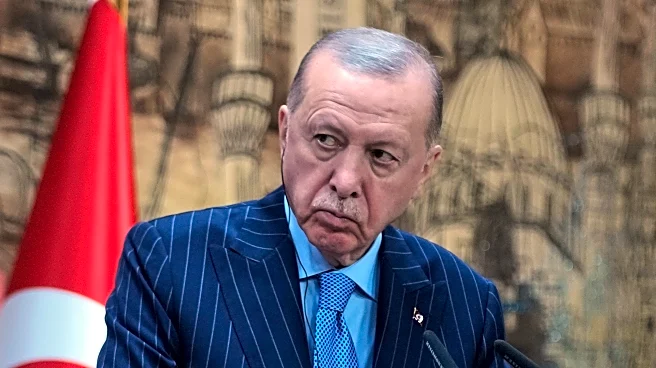In an explosive moment on ABC's "The View," co-host Joy Behar alleged that former President Donald Trump harbors jealousy toward his predecessor, Barack Obama. Behar's bold assertion centered around the
Did You Know
Honeybees can recognize human faces and remember them for their entire lives.
?
AD
idea that Trump lacks the admirable qualities of Obama—being "trim, smart, handsome, and happily married." This comment reverberated throughout political channels, igniting not only a heated debate on social media but also drawing a sharp response from the White House.
The Trump administration wasted no time in retaliating, branding Behar as an "irrelevant loser" in an official statement. The rebuke was more than just harsh words; it came coupled with a menacing warning that "The View" could be "pulled off the air" if it continued to challenge the President. This escalated conflict underscores a significant tension between the media and the Trump regime, revealing how political leaders in today's climate might target public figures who dare to criticize them.
As the fallout from this altercation continues to unfold, it serves as a poignant reminder of the increasingly complicated relationship between politics and media. Behar's remarks were made against the backdrop of Trump's own inflammatory accusations against Obama, claiming treason and election rigging. The discourse has become a battleground for contrasting ideologies, where the consequences for speaking out can be severe. As this saga highlights, the road ahead for media criticism—especially in the face of powerful political entities—remains fraught with challenge and uncertainty.
Q&A (Auto-generated by AI)
What led to Trump's jealousy of Obama?
Trump's jealousy of Obama is often attributed to contrasting public personas and achievements. Obama is viewed as articulate, composed, and charismatic, traits that many believe Trump lacks. This perception was highlighted when Joy Behar from 'The View' remarked that Obama embodies qualities such as being 'trim, smart, and handsome,' which Trump is perceived not to possess. Trump's frequent criticisms of Obama, including accusations of treason, further underscore this rivalry.
How has 'The View' influenced political discourse?
'The View' has significantly shaped political discourse by providing a platform for diverse opinions on current events. Its co-hosts often engage in discussions that challenge political figures, such as Joy Behar's comments about Trump and Obama. The show's blend of entertainment and serious commentary allows for broader public engagement with political issues, making it a notable influence in shaping viewers' perceptions and opinions on important topics.
What are common tactics used by the White House?
The White House often employs tactics such as public rebuttals, press releases, and media engagements to manage narratives. In response to Behar's comments, the White House labeled her an 'irrelevant loser' and issued statements warning 'The View' to be cautious. Such tactics aim to assert control over public perception and to deter further criticism, demonstrating the administration's approach to handling media interactions.
How do public figures respond to criticism?
Public figures typically respond to criticism through various strategies, including direct rebuttals, social media responses, and public statements. Trump's administration, for example, frequently issues strong statements to counter criticisms, as seen when they responded to Behar's comments. Others may choose to ignore criticism or use humor to deflect attention, depending on their personal style and the nature of the critique.
What role does media play in political narratives?
Media plays a crucial role in shaping political narratives by framing issues, influencing public opinion, and providing a platform for dialogue. Shows like 'The View' amplify specific viewpoints and can catalyze public discussions, as seen with Behar's comments about Trump. The way media presents information can significantly impact how events are perceived and understood by the public, often driving the political discourse.

:max_bytes(150000):strip_icc()/joy-behar-Brendan-Carr-072425-487ef1ab033947ae9b6f915373286e2c.jpg)













